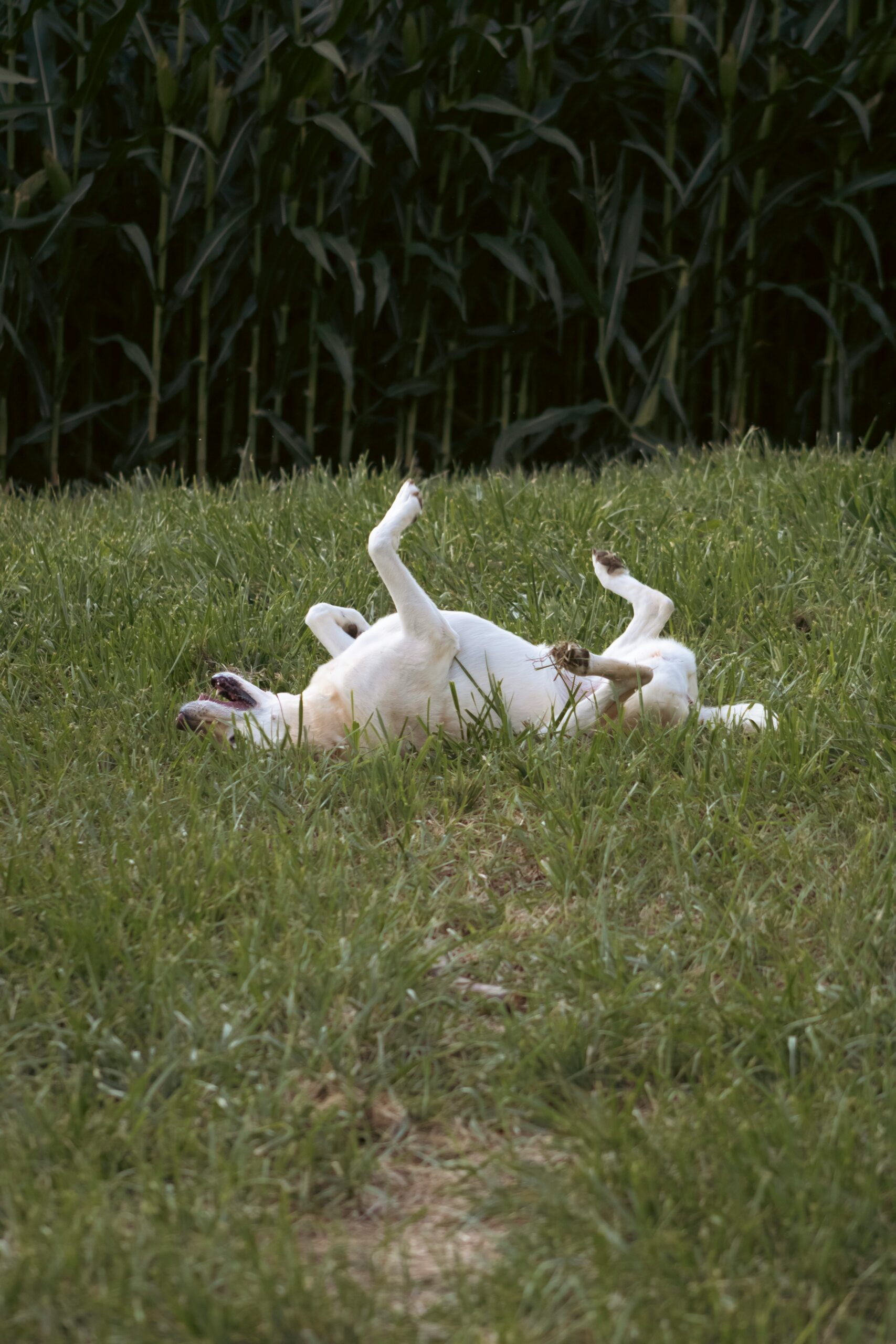Heartwarming Stories of Pet Loyalty
Introduction to Pet Loyalty
Pet loyalty is a remarkable phenomenon that has fascinated humans for centuries. Whether it’s the unfaltering affection of a dog, the endearing companionship of a cat, or the unconditional love from other animals, the bonds they form with their human families are profound and enduring. Such loyalty stems from various emotional, psychological, and evolutionary factors, which have been the subject of numerous studies and anecdotes.
Emotionally, pets like dogs and cats are capable of experiencing a range of feelings, including love, attachment, and empathy. These emotional experiences play a pivotal role in fostering a sense of loyalty. For instance, a dog’s loyalty often manifests through its joyful greetings, protective behavior, and unwavering companionship. Cats might be more subtle but show their loyalty through gentle nudges, purring, and the consistent presence they maintain in their owners’ lives.
Psychologically, the bond between pets and their owners can be understood through the lens of attachment theory. Much like the attachment seen between human parents and children, pets form secure attachments to their human caregivers. This attachment provides them with a sense of security and stability, which further strengthens their loyal behavior. Additionally, the routines and rituals shared between pets and their owners contribute to a sense of predictability and trust, essential components of a loyal relationship.
From an evolutionary perspective, the domestication of animals like dogs can be traced back thousands of years. Humans and dogs have co-evolved, with each species benefiting from the relationship. Dogs, for instance, have historically been hunters and protectors for human communities. This mutually beneficial relationship has engrained a sense of loyalty in their genetic makeup. Similarly, cats, though more independent, have co-existed with humans for millennia, nurturing a bond built on companionship and mutual benefit.
In essence, the loyalty displayed by pets is multi-faceted, influenced by emotional connections, psychological attachments, and evolutionary history. This profound loyalty serves as a testament to the deep and enduring bonds that can exist between humans and their animal companions.
The Bond Between Dogs and Humans
Throughout history, the relationship between dogs and humans has been marked by tales of unparalleled loyalty and devotion. One of the most poignant examples is the story of Hachiko, an Akita dog from Japan. Hachiko’s unwavering loyalty to his owner, Professor Ueno, has become a global symbol of canine fidelity. Every day for nearly a decade after Professor Ueno’s passing, Hachiko patiently waited for his return at Shibuya Station. This enduring loyalty has transcended time, inspiring monuments, movies, and an enduring place in popular culture.
Beyond historical examples, modern-day stories continue to illustrate the deep bond between dogs and humans. Therapy dogs serve as a testament to this connection, offering comfort and companionship to individuals in hospitals, nursing homes, and disaster zones. Their intuitive ability to sense human emotions and alleviate stress through interaction highlights the emotional depth of the canine-human relationship. These incredible dogs not only provide physical presence but also emotional healing, significantly improving the well-being of those they assist.
Search and rescue canines are another profound example of loyalty and dedication. Trained to locate missing individuals in natural and human-made disasters, these dogs tirelessly work alongside their handlers in challenging and often dangerous environments. Their keen sense of smell and determination have led to countless successful rescues, showcasing their commitment to human life. Stories of search and rescue missions underscore the trust and teamwork between these dogs and their handlers, further emphasizing the extraordinary bond they share.
Everyday pet dogs also demonstrate remarkable acts of loyalty and love. Many pet owners can recount instances where their dogs have stayed by their side during difficult times, sensing when they need comfort the most. The simple yet profound act of a dog resting its head on a person’s lap or offering a paw illustrates the unspoken understanding and support inherent in the dog-human relationship. These everyday moments, though less dramatic than legendary tales, are a testament to the unwavering loyalty that defines this timeless bond.
Cats: More Loyal Than You Think
Cats have long been stereotyped as aloof and independent creatures, often seen as less emotionally attached to their owners compared to their canine counterparts. However, numerous heartwarming stories challenge this perception, revealing the depth of loyalty that cats can possess. These stories not only debunk the myth of the detached feline but also show the strong bonds that can form between cats and their human families.
One remarkable story is that of Holly, a tortoiseshell cat who showcased extraordinary devotion to her owners. After becoming lost during a family vacation in Daytona Beach, Florida, Holly embarked on an almost 200-mile journey to return home. With no guidance and only her determination, Holly traversed diverse terrains, demonstrating an unyielding commitment to reunite with her family. Upon her arrival, Holly was frail but unharmed, a testament to the enduring connections that cats can establish with their owners.
Another compelling narrative involves an orange tabby named Rusty who displayed protective behavior that rivaled any guard dog. When an intruder attempted to break into his home, Rusty courageously stood his ground, hissing and swiping at the trespasser until they retreated. Rusty’s actions exemplify the loyalty cats can have toward their human families, adding a layer of complexity to their typically reserved demeanor.
These stories are not isolated incidents. There are countless accounts of cats demonstrating their loyalty through protective actions, such as alerting their owners to dangers, staying by their side during times of illness, and even taking on potential threats. Moreover, many cats have been noted for their impressive navigational skills, traveling great distances to reunite with their loved ones after becoming lost. This homing instinct further underlines the emotional bonds that cats are capable of forming, refuting the stereotype that they are entirely independent and indifferent.
In essence, while cats may not always exhibit their loyalty in overt ways, their actions speak volumes. These stories highlight that beneath their often self-sufficient exteriors, cats can harbor deep-seated loyalty and affection for their human companions, contradicting the long-standing myth of the aloof feline.
Exotic Pets and Their Devotion
The idea of pet loyalty often conjures images of affectionate dogs or independent but loving cats. However, the narrative is rich with stories of lesser-known exotic pets displaying profound devotion, offering a fascinating glimpse into the diverse nature of animal loyalty. While parrots, rabbits, and even reptiles may not typically be associated with unwavering fidelity, these species have shown that loyalty transcends traditional boundaries.
Consider parrots, for example. These intelligent birds are known for their ability to mimic human speech, but their loyalty to their caregivers is even more compelling. Parrots form strong emotional bonds with their owners, mirroring the dedication seen in more conventional pets. One notable story involves a parrot named Alex, who was part of a groundbreaking study on animal cognition. Beyond his intellectual prowess, Alex demonstrated deep attachment to his handler, displaying signs of distress during her absence and evident joy upon her return.
Rabbits, often labeled as low-maintenance pets, also exhibit a surprising degree of loyalty. Unlike their counterparts in the wild, domestic rabbits can form robust bonds with their humans. A beloved tale recounts a rabbit named Thumper, who would consistently stand guard at the door until his owner returned home, a behavior that speaks volumes of his devotion. Thumper’s actions challenged the stereotype of rabbits being solely creatures of habit, reinforcing the notion that they are indeed capable of complex emotional connections.
Reptiles, such as lizards and turtles, may appear indifferent, but they, too, can demonstrate loyalty in subtle yet profound ways. An intriguing case is that of a turtle named Tank, who lived with a family for over two decades. Tank would frequently seek out his owners, displaying an unusual preference for their company over other environmental stimuli. His consistent behavior suggested a bond rooted in familiarity and trust, elements crucial to the concept of loyalty.
These anecdotes from the world of exotic pets expand our understanding of animal companionship. Parrots, rabbits, and reptiles might not fit the traditional mold of loyal pets, but their actions speak to an undeniable capacity for loyalty, reshaping how we perceive bonds between humans and animals.
Service Animals: Loyalty in Action
Service animals demonstrate an extraordinary level of loyalty and dedication, making them indispensable companions to individuals with various needs. Dogs trained as guide dogs, hearing dogs, and emotional support animals are prime examples of this incredible bond. These animals undergo rigorous training to ensure they can provide reliable and consistent support to their human counterparts, thereby fostering a deep sense of trust and mutual dependence.
Guide dogs, for instance, are specifically trained to assist visually impaired individuals by navigating obstacles, alerting their handlers to changes in the environment, and ensuring their safety in various settings. This requires not only a high level of intelligence and skill but also an unwavering sense of loyalty. The bond between a guide dog and its handler is built on trust and communication, creating a partnership that enhances the handler’s independence and quality of life.
Similarly, hearing dogs are trained to assist those with hearing impairments by alerting them to important sounds such as alarms, doorbells, and even crying babies. These dogs are trained to distinguish between different sounds and respond appropriately, ensuring their handlers are aware of their surroundings and can react accordingly. The loyalty of these dogs is evident in their consistent vigilance and the comfort they provide to their humans, knowing that they can rely on their faithful companion to keep them informed and safe.
Emotional support animals, while not always subjected to the same rigorous training as service animals, exhibit a unique form of loyalty through their ability to provide comfort and emotional stability to individuals struggling with mental health issues. The presence of these animals can alleviate symptoms of anxiety, depression, and PTSD by offering unconditional love and companionship. This deep emotional bond reinforces the sense of loyalty, as these animals intuitively respond to the emotional needs of their humans, providing a sense of calm and reassurance in times of distress.
The extraordinary loyalty of service animals stands as a testament to the profound connection between humans and their animal companions. Through intensive training and an innate sense of dedication, these animals transform the lives of those they serve, illustrating the boundless potential of loyalty in action.
Tales of Rescue and Loyalty
One might think that animals who have faced abandonment or mistreatment would be wary of developing close bonds with people. However, countless stories showcase that the opposite is often true. Animals rescued from shelters or dire circumstances frequently exhibit profound loyalty to their new families, illustrating the remarkable capacity for forgiveness and trust that pets possess.
Take the story of Max, a Labrador Retriever who was found emaciated and wandering the streets. After being rescued by a loving family, Max demonstrated extraordinary loyalty. One fateful night, when a fire broke out in the house, Max alerted his family, ensuring their safe escape from the burning home. His unwavering dedication to his new family resulted in him becoming a local hero, celebrated for his courageous act.
In another instance, Bella, a mixed-breed dog rescued from a neglectful situation, showed how rescue animals can transform into devoted companions. Bella was timid and scared when she first came to her new home, but through patience and love, she began to trust again. A turning point in their bond occurred when Bella alerted her family to an intruder attempting to break in. Her protective instincts and loyalty safeguarded her family, proving just how deep her bond with them had grown.
Cats, too, exemplify astonishing tales of rescue and loyalty. Whiskers, a stray cat who found her way to a family’s doorstep, became an irreplaceable part of their lives. After being adopted, Whiskers formed a special connection with the daughter in the family, who was undergoing therapy. Whiskers provided comfort and support during challenging times, her mere presence during therapy sessions making a significant difference in the daughter’s progress.
These stories highlight not just the resilience of rescue animals, but also their incredible capacity to form lasting, loyal bonds with their families. It’s clear that the act of rescuing pets often leads to a reciprocal form of rescue, where both the pet and the family find solace and unwavering companionship in each other.
Famous Historical and Fictional Loyal Pets
Throughout history and fiction, tales of loyal pets have captured the hearts of countless individuals, leaving an indelible mark on cultural narratives. One of the most notable historical accounts is that of Greyfriars Bobby, a Skye Terrier who famously stayed by his master’s grave in Edinburgh for 14 years. His unwavering loyalty has not only been commemorated with a statue and a dedicated annual ceremony but also continues to inspire many, portraying the profound bond between humans and their pets.
In the realm of fiction, Lassie remains an iconic figure, exemplifying the epitome of faithfulness and courage. Originating from Eric Knight’s 1940 novel “Lassie Come-Home,” this Rough Collie has become a symbol of devotion and has been immortalized through various media, including movies and television series. Lassie’s adventures have emphasized the selfless acts of loyalty pets can exhibit, leaving an enduring impact on audiences worldwide.
Beyond these specific stories, literature and cinema have been rich sources of loyal pet representations. For instance, in “Old Yeller,” the beloved canine hero demonstrates bravery and steadfastness, profoundly affecting viewers with its emotional depth. Similarly, the tale of Hachiko, a dog in Japan who waited for his deceased owner at a train station for over nine years, has been immortalized in both Japanese and American films, strengthening the narrative of pets’ incomparable loyalty.
These poignant stories, both from history and fiction, have significantly shaped public perceptions of pets. They emphasize the unspoken bond and mutual respect often shared between humans and their animal companions. Works like these offer a profound understanding of loyalty, shedding light on how pets, through various acts of devotion, become cherished members of families and society.
Conclusion: The Impact of Pet Loyalty on Human Lives
The unwavering loyalty of pets significantly enhances the quality of human lives through the provision of emotional support, steadfast companionship, and an extraordinary form of unconditional love. Through various heartwarming stories, it is evident that our loyal pets play a pivotal role in shaping our daily lives and well-being. The bond between pets and their owners extends beyond a mere relationship; it becomes an integral part of one’s life experience, often with profound emotional implications.
Pets offer companionship that mitigates feelings of loneliness and isolation, fostering a sense of purpose and belonging. Studies have shown that the presence of a loyal pet can alleviate stress, reduce anxiety, and even lower blood pressure. This is particularly significant in today’s fast-paced world, where many individuals grapple with the pressures of modern living. The simple act of caring for a pet provides a routine and a sense of responsibility that can be incredibly grounding and therapeutic.
Moreover, the emotional bond formed with a loyal pet offers invaluable support during challenging times. Whether it’s a difficult day at work or coping with a personal loss, pets provide a comforting presence that can ease emotional burdens. Their intuitive nature allows them to sense their owners’ moods and respond with affection and fidelity, often becoming pillars of strength and motivation for their human counterparts.
Both pets and owners benefit from this relationship, creating a symbiosis where loyalty and love are mutually exchanged. It is assuredly a relationship worth nurturing and valuing. As we reflect upon the stories of pet loyalty, it is crucial to appreciate and cherish the pets who enrich our lives. By investing time and affection, we can ensure that the bond remains strong and fulfilling.
In conclusion, the impact of pet loyalty on human lives is profound. It is a testament to the incredible bond that can form between species, offering countless benefits to physical and emotional health. We are encouraged to honor and cultivate this unique and precious connection, thereby enhancing the lives of both pets and owners.















Post Comment